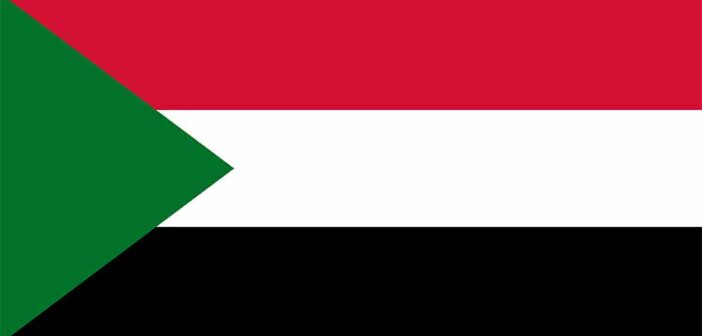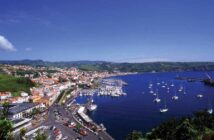- The Good Lie” (2014): This drama film follows the story of Sudanese refugees who journey to the United States during the second Sudanese civil war. It stars Reese Witherspoon and portrays the challenges and triumphs faced by the characters.
- “Toussaint Louverture” (2012): Although primarily focused on the Haitian Revolution, this historical drama also depicts the brief period when Toussaint Louverture, the leader of the Haitian Revolution, was held as a prisoner in Sudan. The film sheds light on his extraordinary life and his fight for liberty.
- “The Devil Came on Horseback” (2007): This documentary exposes the atrocities taking place in Darfur, Sudan, during the genocide. The film follows former U.S. Marine Captain Brian Steidle, who documented the violence and human rights abuses in an effort to bring attention to the crisis.
- “Bamako” (2006): Directed by Abderrahmane Sissako, this film takes place in a courtyard in Mali’s capital, Bamako, but delves into the struggles of Africans across the continent. The story includes a trial held in a domestic setting, where African participants portray the mounting economic and political crises in Africa, including Sudan.
- “Khartoum” (1966): Starring Charlton Heston, Laurence Olivier, and Richard Johnson, this epic historical drama focuses on the Siege of Khartoum in 1884. It depicts the events surrounding General Charles ‘Chinese’ Gordon as he fights against the Mahdist forces and defends the city in what eventually becomes a tragic tale.
- “Season of Migration to the North” by Tayeb Salih is a classic post-colonial novel by Sudan’s renowned author. Set in the mid-20th century, it follows the story of a Sudanese man who returns to his homeland after studying in Europe. The novel explores themes of cultural clash and identity as the protagonist grapples with his experiences abroad and the challenges of fitting back into Sudanese society.
- “The Wedding of Zein” by Tayeb Salih – Another noteworthy work by Tayeb Salih, this novella is set in a small Sudanese village and revolves around the preparations for the wedding of Zein, a simple and lovable man. It explores the complexities of village life and examines the traditional and modern forces at play.
- “The Translator: A Tribesman’s Memoir of Darfur” by Daoud Hari – This memoir provides an insightful account of Sudan’s Darfur region during the conflict in the early 2000s. Daoud Hari, a Zaghawa tribesman, reflects on his experiences as a translator for journalists and aid workers, shedding light on the atrocities and resilience of the people affected.
- “A Long Way Gone: Memoirs of a Boy Soldier” by Ishmael Beah – Although not exclusively set in Sudan, this memoir tells the story of Ishmael Beah’s harrowing journey as a child soldier during the civil war in Sierra Leone. It provides a powerful portrayal of the impact of war on young lives in the region, while also touching on the regional dynamics that contribute to conflicts.
- “The Grub Hunter” by Amir Tag Elsir – Set in modern Sudan, this novel explores the life of the main protagonist, an investigative journalist, as he unravels corruption and conspiracy. Through his quest, the novel sheds light on both personal and societal challenges faced in contemporary Sudan.
- “Sudan’s Unfinished Democracy” by Willow Berridge, Justin Lynch, Raga Makawi, and Alex de Waal focuses on Sudan’s recent history, particularly the people’s revolution in 2019 that led to the ousting of the Islamist regime of Omar al-Bashir. It delves into the rise of Muhammad Hamdan Dagalo (known as Hemedti) and the competition for power between the Rapid Support Forces (RSF) and the regular army, which eventually erupted into war.
- “Sudan, South Sudan, & Darfur: What Everyone Needs to Know” by Andrew Natsios is a concise account of Sudan’s political history, with a focus on rebellions, insurrections, and civil wars. It provides illuminating profiles of significant personalities involved in Sudan’s conflicts and offers insights into the country’s pathologies up until 2011.
- “A History of Modern Sudan” by Robert Collins offers a rich and detailed narrative of Sudan’s history from the 1820s to around 2000. Collins provides an in-depth exploration of Sudanese politics, regimes, and the dictatorship of Omar al-Bashir. This book remains comprehensive, even though it does not cover the conflict in Darfur.
- “The Sudan Handbook” edited by John Ryle, Justin Willis, Suliman Baldo, and Jok Madut Jok is a collection of 18 essays written by experts affiliated with the Rift Valley Institute. These essays cover various aspects of Sudan’s history, culture, politics, and relations with neighboring countries. The handbook also includes maps, a chronology, and profiles of key figures in Sudanese history.
- “War of Visions” by Francis Deng offers an analysis of Sudan’s identity politics by someone who has dedicated his life to bridging divisions in the country. Deng’s work combines academic detachment with a deep understanding of Sudan’s diverse ethnic groups. Although some conclusions may be dated, his analysis of tribal politics remains relevant.
WANDERLIST: Sudan in books and on film
0
Share.




